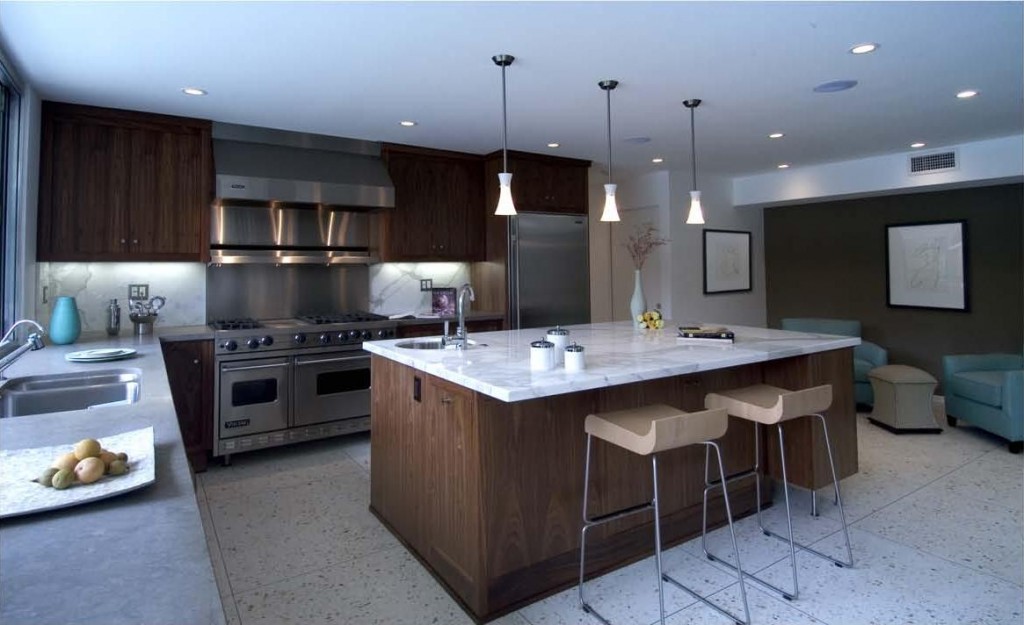Six Cautions Over-improving Your Home
Six Cautions about Over-improving Your Home

(TNS)-Call it the curse of over-improving: sinking so much into upgrades, renovations or additions that you’ve burned off nearly all the equity of your home.
When you sell, you “never get 100 cents on the dollar, no matter what the improvement,” says Erik H. Reisner, managing partner of a Vermont real estate company. “It may increase the value of the property, but not dollar for dollar.”
That means homeowners need to be careful when they plan home improvements, renovations or additions.
The Bottom Line If it’s for your own use or helps you get more time in the house (like adding a first-floor bedroom), that’s smart. But if your sole purpose is to increase your home price or even “get it back at resale,” forget it.
Want to be wise with your renovation dollars? Here are six points to consider.
1. Over-improve for yourself Are you over-improving to suit your own needs? That’s fine, says Pat Vredevoogd Combs, past president of the National Association of REALTORS and vice president of a real estate firm in Grand Rapids, Mich.
But a smart homeowner thinks in terms of getting value through enjoyment of the project, not an increase in home value, she says.
So if you’re planning to over-improve the home for yourself and your family, do it while (or because) you’re planning for many years in this home, she says.
Short-Timers Should Keep as Is “If you just bought the house of your dreams and you’re planning to stay there for the next 20 years, do it and enjoy the heck out of it,” Combs says. “If you’re planning to move in the next three to five years, bite your tongue and bide your time.”
Renee Behr, broker associate in Colorado Springs, Colo., agrees. Over-improving can be OK, she says, if you plan on staying there, or “you don’t care if you get it back when you sell.”
2. Big improvements don’t yield big bucks
There’s one in every neighborhood: the guy who’s convinced if he adds enough granite, hardwood and molding to his modest house, he can get palace prices when he sells.
“Just because a house has new countertops and a brand-new master bath doesn’t mean you’ve made more square footage in your house,” Combs says. “Compared to houses down the street with the same amount of square footage,” the prices will be basically the same, she says.
Over-improved for the location Reisner recalls one homeowner who owned a $400,000 house in a $400,000 neighborhood. The owner “did a ton of renovations and additions” and then listed it for $700,000.
“We do run into this all the time,” Combs says. And while over-improved houses can sometimes sell faster, they still don’t return the money their owners put into them, she says.
Even in the rooms that are renovated most often-kitchens and bathrooms-it’s possible to over-improve, says Katie Severance, co-author of “The Complete Idiot’s Guide to Selling Your Home” and REALTOR in Montclair, N.J.
3. Over-improving scares buyers You’ve done it all: turned that master bedroom into a sweet suite, attached a luxury bathroom and added a deck. Or maybe you transformed a plain-Jane kitchen and never-used dining room into an uber-cool great room cum gathering spot.
But if your house is the most expensive in the neighborhood, that scares buyers, Severance says.
“Buyers are apprehensive about buying the most expensive house on the street.”
Adding a room swells the price if you’ve increased the square footage, Combs says. If your addition puts you at or over the highest prices in the neighborhood, “you’ll have a hard time” at resale, she says.
4. ‘Too-little yard’ syndrome While more square footage often equals higher home value, pay attention to how an addition affects the yard, Severance says.
“Stand on the sidewalk and look at the other houses,” Severance advises. “Is what you’re planning consistent with the scale of the other houses? “The size of the yard is a major factor for buyers,” she says. And if the house crowds the yard, it doesn’t matter how upgraded the inside is.
One of the most financially dangerous over-improvements is outsized additions that are either too big for the neighborhood or too large for the lot, she says.
5. Play ‘count the bedrooms’ It’s not always the major renovations that cause problems at resale, Severance says.
One thing to watch: the number of bedrooms, relative to the rest of the neighborhood.
If you have four or fewer bedrooms, then converting one into a walk-in closet or taking that space to add on to an adjoining room could make your house worth less when you sell, Severance says.
Keep Enough Bedrooms “Demographically, Americans are having fewer children,” she says. For the most part, buyers “don’t need these six- and seven-bedroom houses anymore.”
But, depending on the neighborhood, a smart buyer keeps at least four bedrooms, she says. If you want to style any of them as hobby rooms or man caves, that’s fine, Severance says. Just avoid changes that require actual renovations – like knocking out or moving walls.
6. Renovation = personalization You want a swimming pool. The next buyer? Not so much. With every renovation you make, you personalize your house and customize it for your own use.
And that’s one more reason to improve-and over-improve-for yourself alone. Special amenities that you consider an upgrade may not have any value for the next buyer, Severance says.
Some will see your sparkling pool as luxurious, even glamorous. Others could view it as a maintenance hassle and a liability, she says. Dana Dratch writes about mortgages and other personal finance topics for Bankrate.com.
2014 Bankrate.com Distributed by Tribune Content Agency, LLC
email from RIS Media
